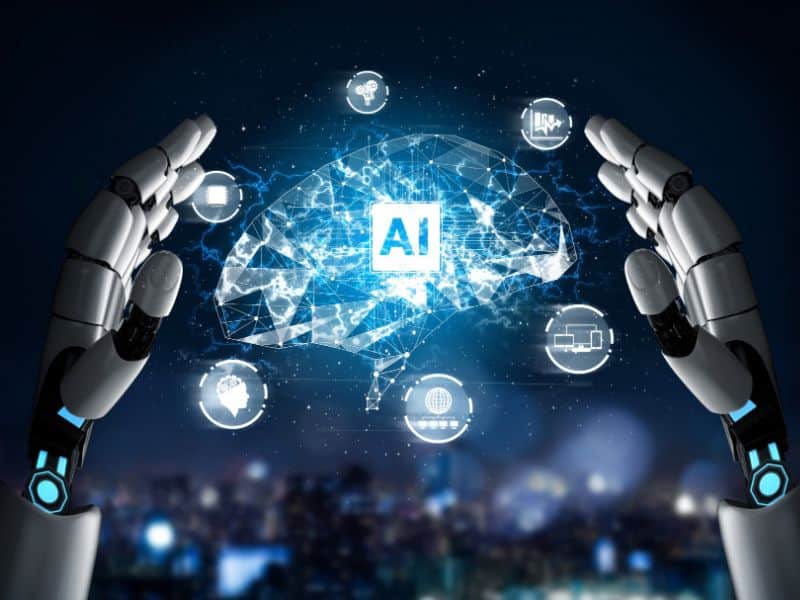Artificial intelligence (AI) has the potential to make a significant impact on talent acquisition and recruiting, from application sifting, assessment & selection, sourcing candidates, to the onboarding of employees.
The technology now exists that allows a position to be filled without recruiter involvement. A well-known airline did just this for its entry level roles where it receives over half a million applicants each year.
AI was able to screen the applicants, invite them to video interviews, assess them and allocate them to the best suited positions, and make job offers. This allowed the company to reduce their recruitment team by two thirds by using AI to manage the end-to-end process.
AI represents an opportunity for recruiters to reduce the time spent on repetitive tasks, particularly in volume hiring such as the example above, where recruiters are faced with endless repetitive tasks.
But what of the applications of AI more broadly? What of the ethical and legal implications? And what could be the impacts of removing human recruiters from the process entirely?
In this piece, I will explore the areas for you to consider at present based on my near two decades of experience in the sector, and the increasing number of conversations we are having about AI.
We will look at the ethical application of AI in recruitment, highlight the common challenges with deploying AI in recruitment, and then comment on how AI will likely impact job creation.
Candidates using AI
As candidates begin using AI to mass apply for roles, it has the potential to expose gaps in recruiting processes, because of companies being unable to manage, at scale, the increased volume of applications.
Also, with candidates having the ability to use AI during the assessment process, it is starting to expose organisations that have a one-dimensional approach in this area, and is causing them to rethink how they assess.
AI represents an opportunity for recruiters to reduce the time spent on repetitive tasks
The ethical application of AI
Bias in the hiring process:
As this article from Forbes highlights, integrating generative AI into decision making may provide an antidote to bias, but the AI is only as good as the data that it’s been trained on historically, which, as we all know, is littered with bias.
If organisations are using AI to screen CVs, ethical questions arise as to whether it will be ruling people out based on their name, location, photographs, work history, age, types of companies they’ve worked at, and more.
AI has been used in video screening for a while now too, and this also presents an ethical issue, and raises questions about the potential bias in this process.
As this article from the Harvard Business Review highlights, how do you impress an algorithm?
Data risks:
There have been social media posts advising recruiters to upload CVs to software like ChatGPT, and asking AI to come up with questions to ask about the candidate’s experience or their suitability to the role.
This presents a huge data and GDPR risk. Companies need to have policies and regulations around this type of practice to prevent future issues.
You only need one wrong move with that, and you end up in a court case.
What’s coming down the road?
As we saw in the airline example, this technology exists right now, but adoption on the most part has been relatively low.
Even at an individual level, many recruiters still aren’t using Gen AI tools like ChatGPT frequently, with a recent poll suggesting that 44% aren’t making use of the technology.
But what about at an organisational level? Will Talent Acquisition teams be the trailblazers in their organisation in implementing AI, or will it be an IT project, where AI is ‘done to’ Talent Acquisition?
Most companies don’t have AI policies. They don’t have the knowledge and skillsets to implement AI in any meaningful way within their organisation, and many already have bulky tech stacks that may prove challenging to integrate with AI tech.
Challenges and limitations of AI
While the integration of automation and Artificial Intelligence (AI) in volume hiring offers numerous benefits, it also presents unique challenges and limitations.
Potential for bias in AI algorithms
One of the primary concerns in using AI for volume hiring is the risk of embedded biases in algorithms.
AI algorithms are only as unbiased as the data they are trained on. If historical hiring data or the criteria set for screening are biased, AI can perpetuate and even amplify these biases.
Dependence on data quality and quantity
The effectiveness of AI in talent acquisition and recruitment heavily relies on the quality and quantity of data available.
Inadequate or poor-quality data can lead to inaccurate AI predictions and assessments. This is particularly challenging for organisations that may not have extensive historical hiring data.
The effectiveness of AI in recruitment heavily relies on the quality and quantity of data available.
Over-reliance on technology
The automation and AI-driven processes in volume hiring might lead to over-reliance on technology. This could potentially neglect the human aspect of recruitment.
While AI efficiently handles large data volumes, it lacks human intuition. Emotional intelligence is crucial for making nuanced hiring decisions.
Excessive automation can lead to a depersonalised recruitment experience for candidates.
Integration and compatibility challenges
Integrating AI and automation tools into existing recruitment processes can be complex and challenging.
Compatibility issues between new AI tools and existing HR systems can hinder the seamless integration of data and processes.
Adopting new technologies requires significant changes in organisational processes and culture, which can encounter resistance from staff accustomed to traditional methods.
How is AI likely to impact job creation?
As with everything, AI will have both positive and negative impacts.
The positive impacts:
New jobs:
AI will lead to the creation of new job types. As an example, we are already seeing positions such as “Prompt Engineers”.
Implementation and management:
Levelling the playing field:
The negative impact:
The biggest negative impact of AI will be the displacement of jobs.
Certain sectors, particularly those involving routine, manual, or administrative tasks, are at high risk of automation.
Jobs in manufacturing, data entry, and some aspects of customer service are likely to see significant displacement.
Lee Harding is Director of TA, Recruitment Enablement, Marketing and Talent Intelligence at Join Talent.










